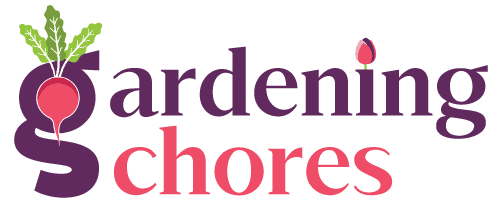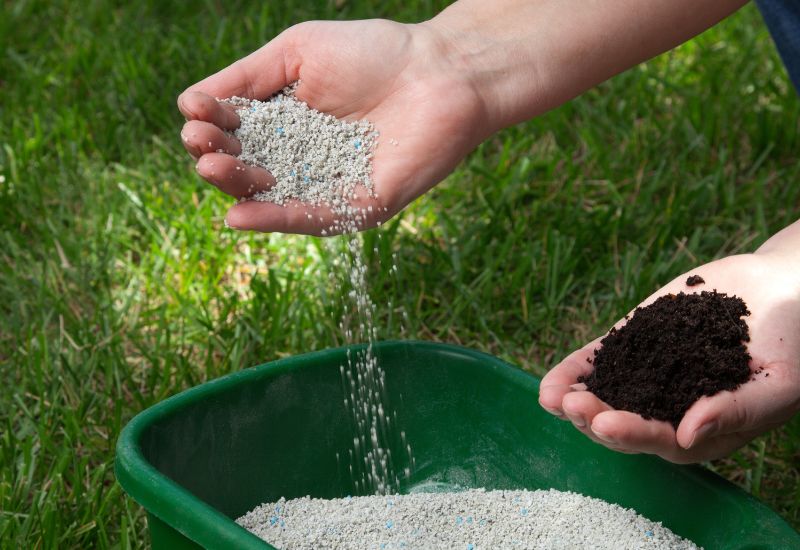
If you type “plant food” into a web search engine, the first websites you get will inevitably ads for “fertilizers” – bottles of nutrients that people give to their plants to help them grow. While most people use the two terms interchangeably, plant food is not the same as fertilizer.
Plant food is glucose that the plant makes itself. It uses energy from the sun to convert water and carbon dioxide into plant food that it consumes or stores to grow and reproduce. On the other hand, fertilizers are nutrients added to the soil to aid and promote plant growth.
They can be natural, like seaweed or rock minerals, or can be formulated in a lab as a liquid or powder with a specific composition.
Let’s take a look at what exactly plant food and fertilizer are, and how they interact in our gardens.
What Do Plants Eat for Food?
We all know about carnivorous plants, especially the legendary Venus Fly Trap, and we are all thankful that John Wyndham’s Triffids are only figments of the author’s imagination.
But what about the rest of the plants? The trees and bushes, grass, the vegetables and flowers in our garden? What do they eat to help them grow? To fully understand the difference between plant food and fertilizer and how these two interact, we must know which elements plants need to grow.
A plant absorbs elements from the soil and air and uses them in different ways throughout its lifecycle.
These elements are typically divided into three groups according to how much a plant needs: Primary (macro) nutrients, secondary nutrients, and micronutrients. All in all, there are 16 essential elements needed by plants.
The primary nutrients required by a plant are:
Secondary nutrients include:
Micronutrients are:
The primary nutrients are most important since a plant needs them in larger quantities than the others. For example, a plant is composed of 45% carbon and 45% oxygen, yet only 0.00001% of the plant is made of molybdenum.
There are also a few other nutrients, namely cobalt, nickel, silicon, sodium, and vanadium but these are only required in small quantities by a select number of plants and are not essential to most gardens.
A plant absorbs these nutrients in different ways. Carbon dioxide and others are taken in through the leaves and many other nutrients a drawn up from the soil by the roots.
What Is Plant Food – The Miracle Of Photosynthesis
Plant food is glucose. The plants in our gardens are autotrophs, meaning they make their own food. Through the process of photosynthesis, a plant uses the energy from the sun to convert water (H20) and carbon dioxide (CO2) into glucose.
It can consume the glucose right away, convert it into cellulose to build its cell walls, or store it as starch to eat later when needed.
If plants only use water and carbon dioxide to make their food, then what are the other nutrients for? Each nutrient plays a vital part in various functions of the plant.
Some of them are necessary for photosynthesis to occur, while others help cell formation, improve enzyme activity, plus much more.
If the surrounding soil is lacking these elements, it inhibits the growth of the plant.
This is where most people mistakenly reach for a bottle of fertilizer.
What Is Fertilizer
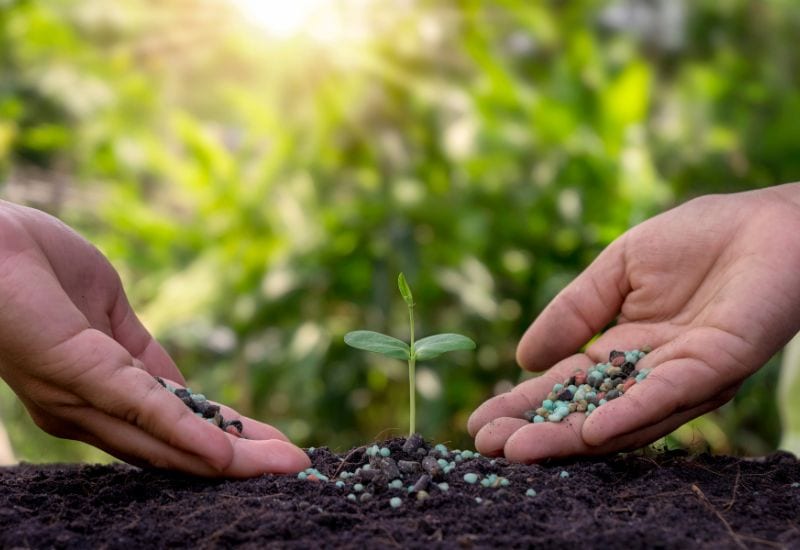
Fertilizer is a soil amendment added to the soil to enhance certain nutrients that are missing.
If certain nutrients are missing from the soil, a plant cannot properly photosynthesize or will be lacking in another area, so the point of fertilizer is to replace the nutrients and help the plant.
Next to carbon, oxygen, and hydrogen the most common elements in a plant are nitrogen (N), phosphorus (P), and potassium (K) which is why most commercial fertilizers are sold by an N-P-K rating.
This rating shows the percentage of each respective nutrient in the fertilizer. Some fertilizers also contain trace amounts of secondary and micronutrients.
There are several different kinds of fertilizers:
Do Plants Need Fertilizer?
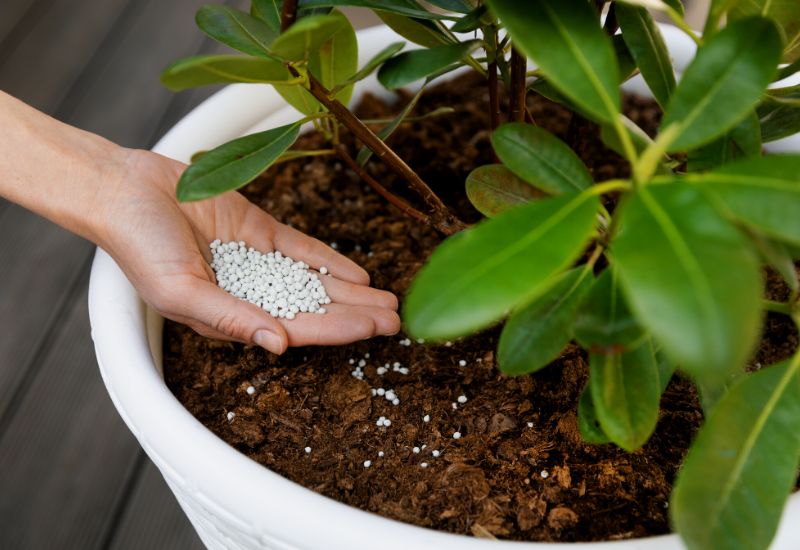
Plants need the nutrients but this does not mean that they need fertilizer.
Fertilizer is meant to feed the plant meaning that you provide an excess of nutrients that give the plants a boost in their growth.
This, however, is only a band aid solution that will not help your plants or garden in the long run. Most fertilizers are water soluble so the majority of the nutrients are washed out of the soil.
Those that remain provide short term benefits for the plant which is why fertilizers generally suggest applying every year or even every three months.
In many cases, the nutrients are not actually missing from the soil but are out of balance so they cannot be properly absorbed. In this case, adding fertilizer is like throwing gasoline on a flame and can actually create an even greater imbalance in the soil.
That said, there are a few instances where applying a natural fertilizer is a good idea and can help your garden.
It is far better to feed the soil by adding compost, or practicing other soil building activities.
Is Compost A Fertilizer?
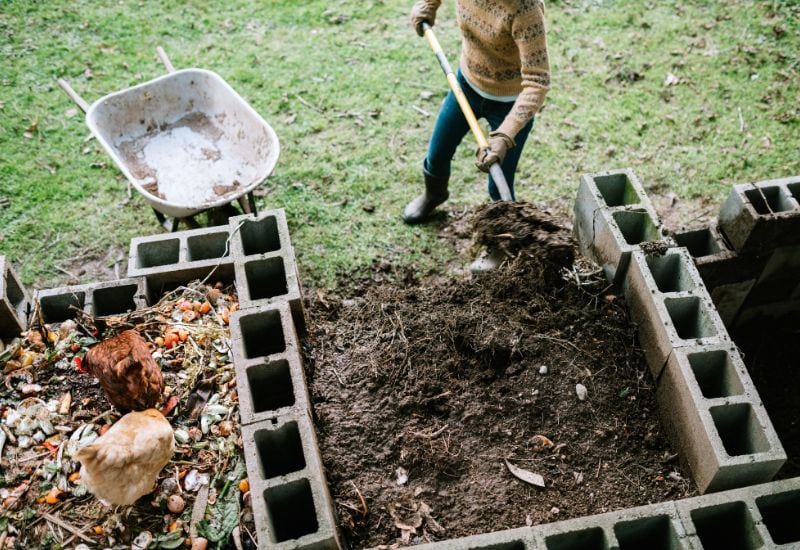
Compost is the dark, rich organic matter in soil made from decomposed leaves, plants, manure, and other organic sources.
Compost is not a fertilizer and is better considered a soil amendment or a soil builder. While it certainly supplies essential nutrients to the soil like fertilizer, it also builds and improves the soil which fertilizers do not.
What Is Organic Fertilizer?
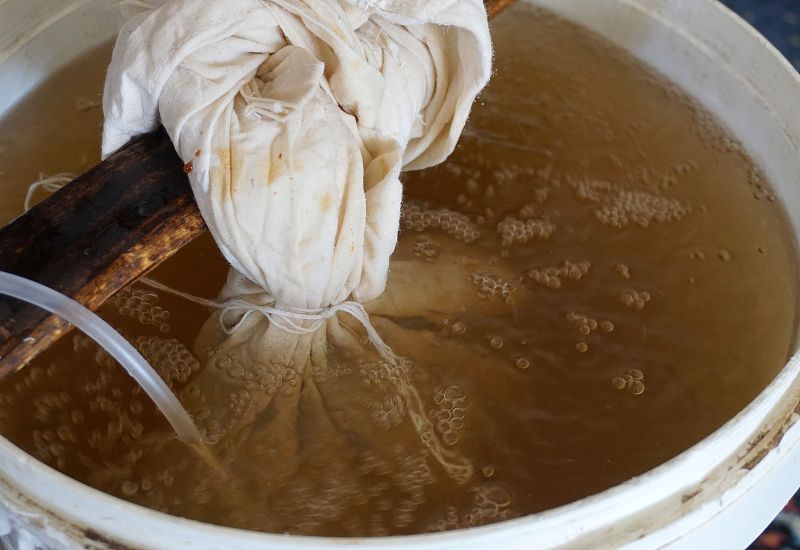
Just like the discrepancies between “plant food” and “fertilizer”, there is some confusion about what organic fertilizer means.
Organic is sometimes used to mean fertilizer that is derived from natural sources, such as seaweed, or it can mean a product, either natural or synthetic, that is certified for organic food production.
Do House Plants Need Fertilizers?
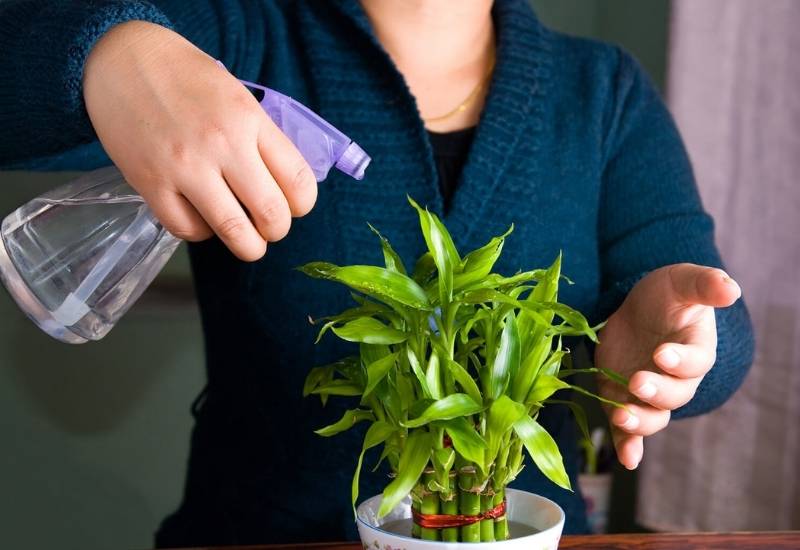
If you search for this question online, you will often find charts for how much fertilizer to apply regularly to your indoor house plants.
In most cases, however, house plants do not require fertilizer and certainly not with the regularity that is suggested.
We often think that because indoor plants are kept under less than ideal conditions in our houses, we must compensate for this by adding fertilizer but, in truth, the fertilizer requirements of an indoor house plant are almost non-existent.
Are Plant Food And Fertilizer The Same Thing?
No, plant food and fertilizer are two different things. Plant food is a product that plants make themselves while fertilizer is a man-made product that is added to the soil to provide nutrients that may be lacking.
These two do work very close together since without proper nutrients in the soil (often supplied by fertilizer) a plant cannot properly make the plant food it needs to survive and thrive.
FAQ
Q: Is Fertilizer Better Than Plant Food?
A: This is a very misleading question that is often answered incorrectly since plant food and fertilizer are two very different things. Plant food is irreplaceable.
In short, there is no replacement for plant food but fertilizers can assist the plant in making the plant food (or glucose).
Q: What Plants Need Fertilizer?
A: None of them. While in some cases, natural fertilizers can provide specific benefits to depleted soil, most of our gardens do not need fertilizer of any kind.
It is far better to build the soil by adding compost which will, in turn, help the plant make its food.
Q: Which Plants Benefit From Fertilizer?
A: If your plants are struggling to thrive, they could benefit from a dose of natural or organic fertilizer as your soil takes time to build itself up.
If in doubt, choose an all-purpose fertilizer, or find one specific to the plant you are trying to grow.
Q: Are Fertilizers Vegan?
A: Many fertilizers are not vegan or vegetarian friendly. Industrial fertilizers are detrimental to wildlife and many natural fertilizers contain manure, blood or bone meal.
There are several vegan options of fertilizers available.
Q: Does Soil pH Affect Plant Food And Fertilizer?
A: Yes, a balanced pH around 5.5 and 7.0 is ideal. Outside this range, many nutrients will either become soluble and wash away or become trapped in the soil.
This will inhibit photosynthesis, and give an inaccurate reading of available nutrients making it hard to fertilizer properly.
Q: Can Fertilizer Be Bad For Plants?
A: In many cases, too much fertilizer can burn plants or otherwise hurt their development. If you do fertilizer, it is important to test the soil first and apply according to the package instructions.
Fertilizer Is Not Plant Food
Now, more than ever, the words we use are important and while something as seemingly trivial as plant food and fertilizer might not make a difference, it can have significant environmental impacts.
Plant food is a wonderful process of nature, while plant food is a pathetic human attempt to improve the soil.
While natural fertilizers can have their place in a healthy garden, most fertilizers are chemicals that should never be used in our gardens.

Written By
Amber Noyes
Amber Noyes was born and raised in a suburban California town, San Mateo. She holds a master’s degree in horticulture from the University of California as well as a BS in Biology from the University of San Francisco. With experience working on an organic farm, water conservation research, farmers’ markets, and plant nursery, she understands what makes plants thrive and how we can better understand the connection between microclimate and plant health. When she’s not on the land, Amber loves informing people of new ideas/things related to gardening, especially organic gardening, houseplants, and growing plants in a small space.
